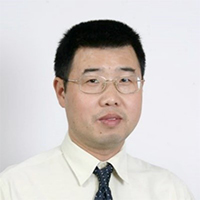报告题目:Tailoring clay nanoparticles for applications in biomedicine and agriculture
报 告 人:Zhi Ping (Gordon) XU 教授
报告时间:2019年7月15日(星期一)上午10:00-11:00
报告地点:长安校区启翔楼233会议室
邀 请 人:李鹏 教授
报告简介:
I will first introduce one typical inorganic nanoparticle, i.e. layered double hydroxide (LDH), and then demonstrate its high potential as the drug/gene delivery platform, including easy preparation, high loading capacity, quick endosome escape and low cytotoxicity. I will then present how to maintain the colloidal stability and avoid the aggregation in medium and blood for in vivo application.
One potential application of clay nanoparticles is vaccine adjuvants that promote higher and long-term immune responses against cancer and bacteria. We have found that LDH is able to readily load model antigen ovalbumin (OVA) and the toll-like receptor ligand CpG together, promote higher levels of specific antibodies, and modulate the immune response from Th2 bias towards the preferred polarity Th1 for anti-cancer purpose, as further evidenced with co-delivery of three antigens for effective inhibition of tumor growth.
The second potential application is acting as an excellent MRI contrast agent for tumor imaging and diagnosis. As LDH is a weak base, the Mn-doped LDH nanoparticles show an pH-ultra-sensitive relaxivity, with the r1 relaxivity being 9-10 mM-1 s-1, and clearly image the tumor tissue. LDH nanoparticles can also be made as multifunctional nanomedicine, combining two therapeutic modules for synergistic treatment of cancers. I will present a few examples to demonstrate the combination therapy for efficient inhibition of tumor growth in mouse model.
A very possible application is used as a carrier for double stranded RNA topical delivery to protect the plants against virus, as will be presented with our current research. This is a good example combining the plant biotechnology and nanotechnology for crop protection, taking the advantage of LDH nanomaterials’ particular property in the field of nano-agro-technology.
报告人简介:
 Professor Zhi Ping Xu is a senior group leader at the Australian Institute for Bioengineering and Nanotechnology. His research focuses on control preparation of LDH nanomaterials, calcium phosphate nanoparticles, nanoemulsions, quantum dots, chemosensros and nanosensors, and their applications in biomedicine and agriculture. He has published over 250 journal papers with the total citations > 10,500 times and H index of 55. He has been awarded over $15 million grants for his research.
Professor Zhi Ping Xu is a senior group leader at the Australian Institute for Bioengineering and Nanotechnology. His research focuses on control preparation of LDH nanomaterials, calcium phosphate nanoparticles, nanoemulsions, quantum dots, chemosensros and nanosensors, and their applications in biomedicine and agriculture. He has published over 250 journal papers with the total citations > 10,500 times and H index of 55. He has been awarded over $15 million grants for his research.
Professor Zhi Ping (Gordon) Xu is an Australian Research Council (ARC) Future Fellow (2013-2016) and UQ VC Senior Research Fellow (2017-2019). Since 2004, He has received a number of fellowships and awards, including an ARC Australian Postdoctoral Fellowship (2005-2007), ARC Australian Research Fellowship (2008-2012), and UQ Foundation’s Research Excellence Award (2009). Professor Xu is an ARC and NHMRC referee, and a board member of 6 international journals.